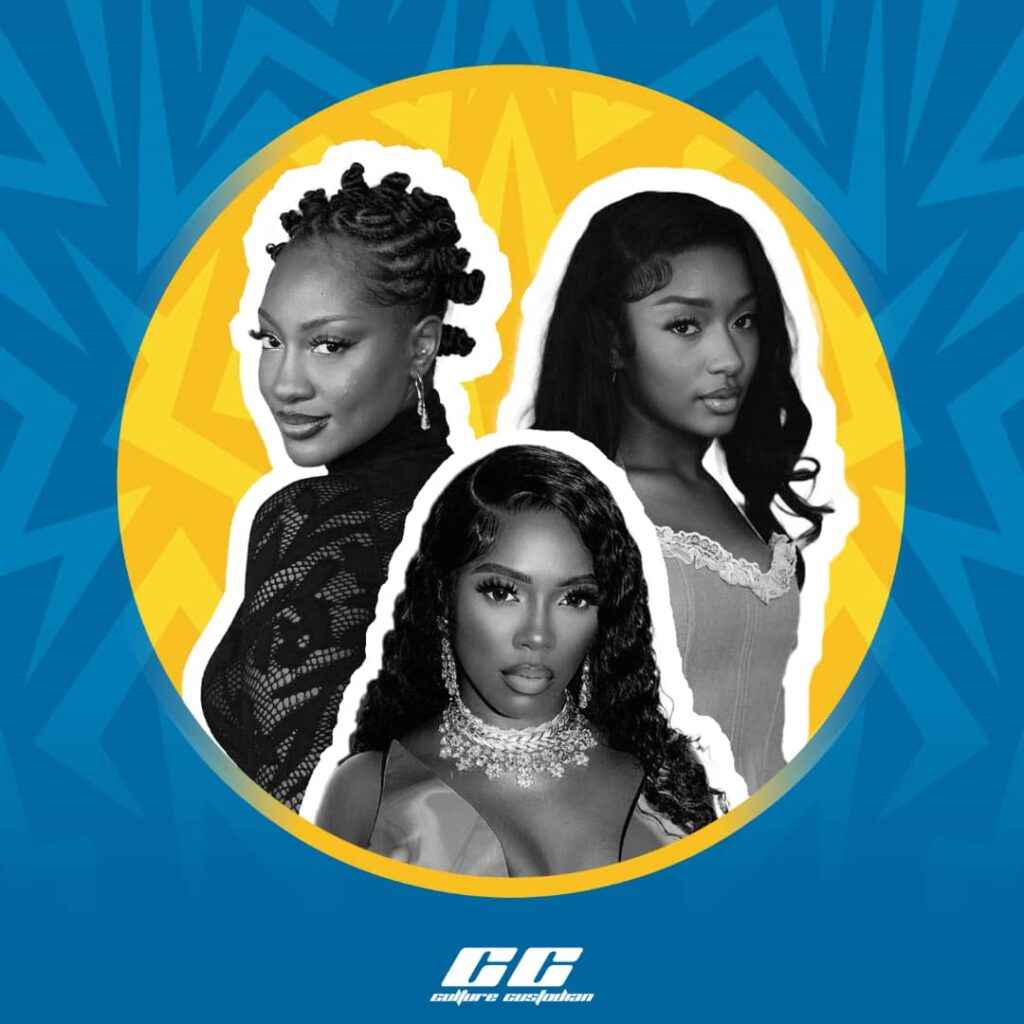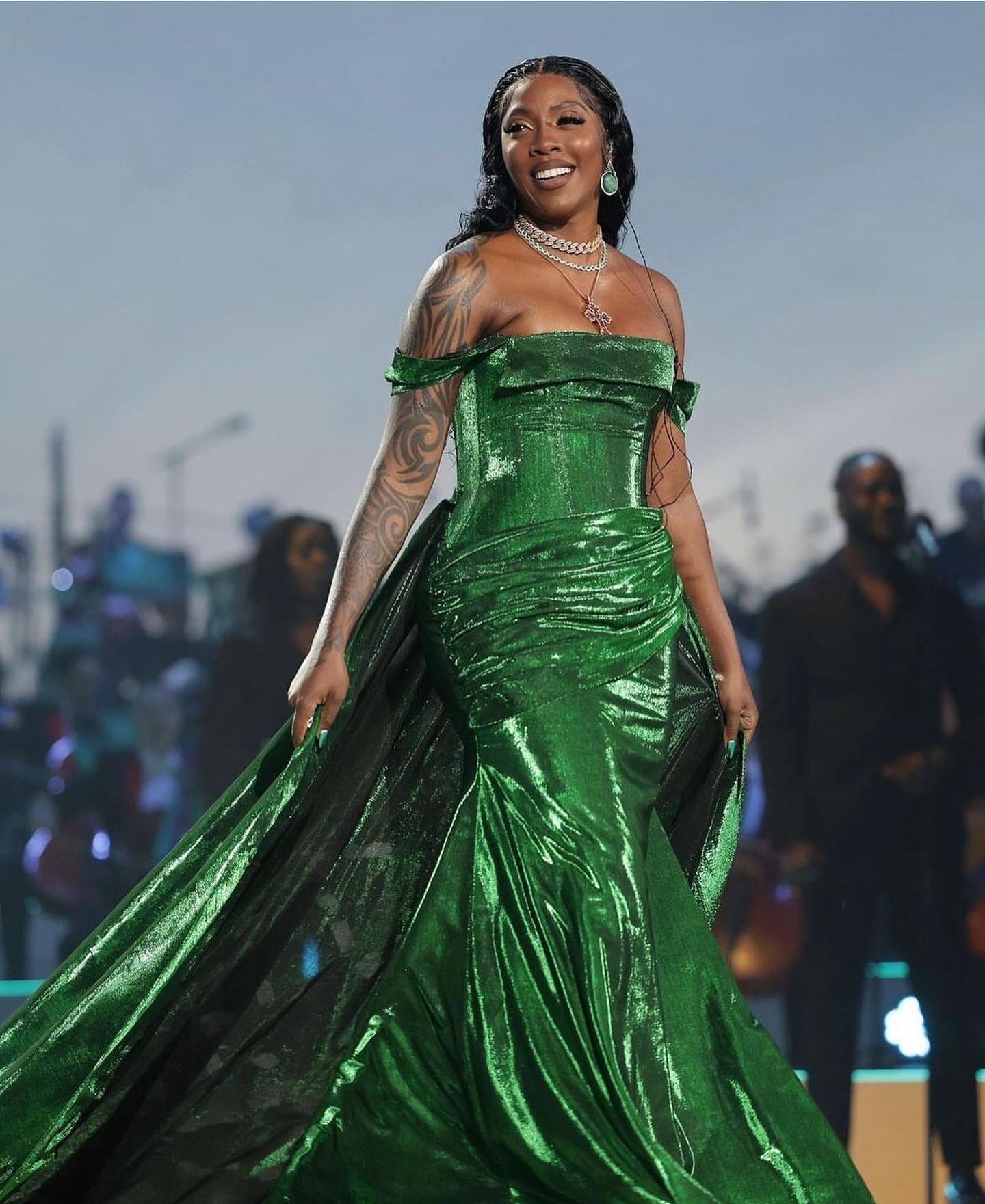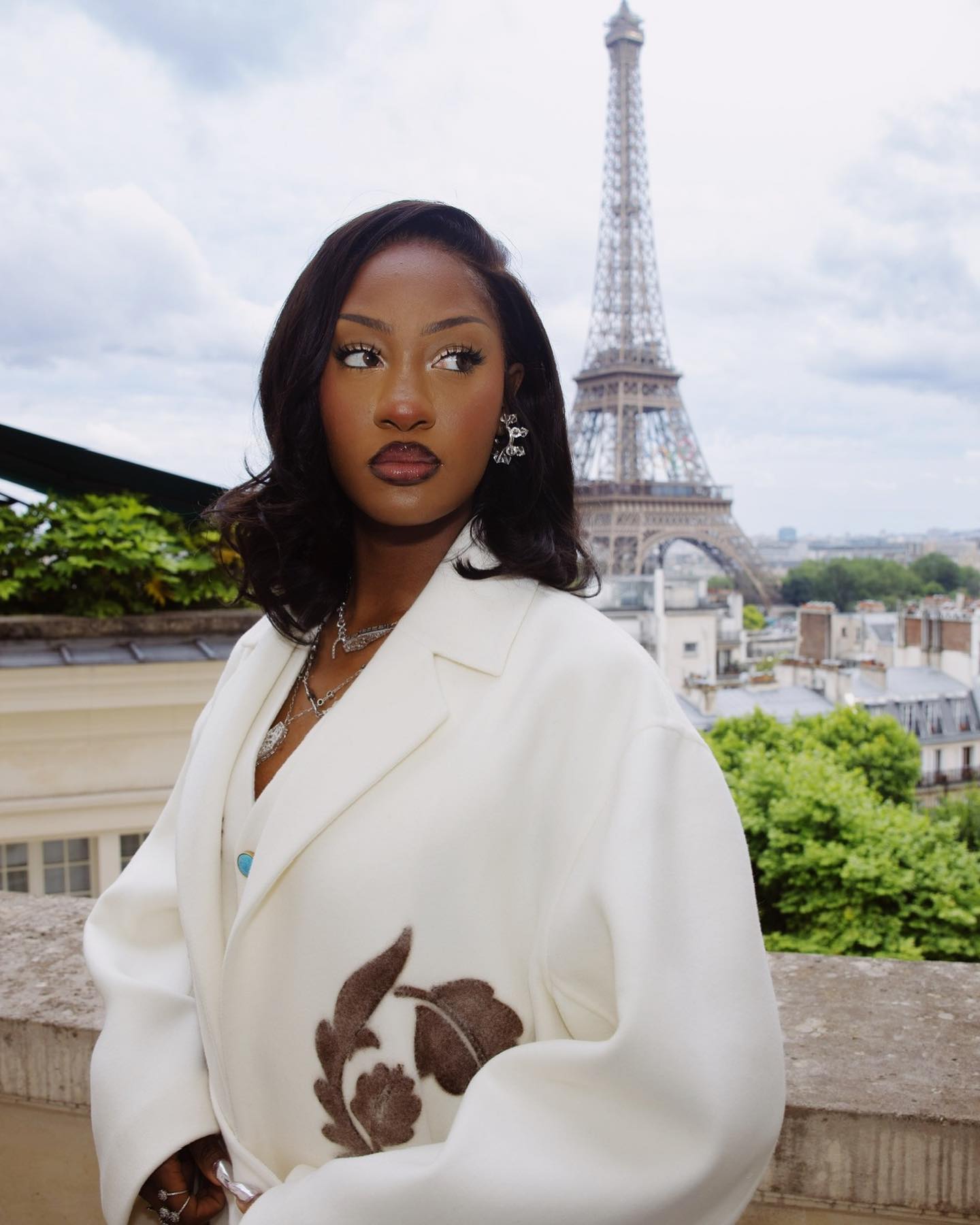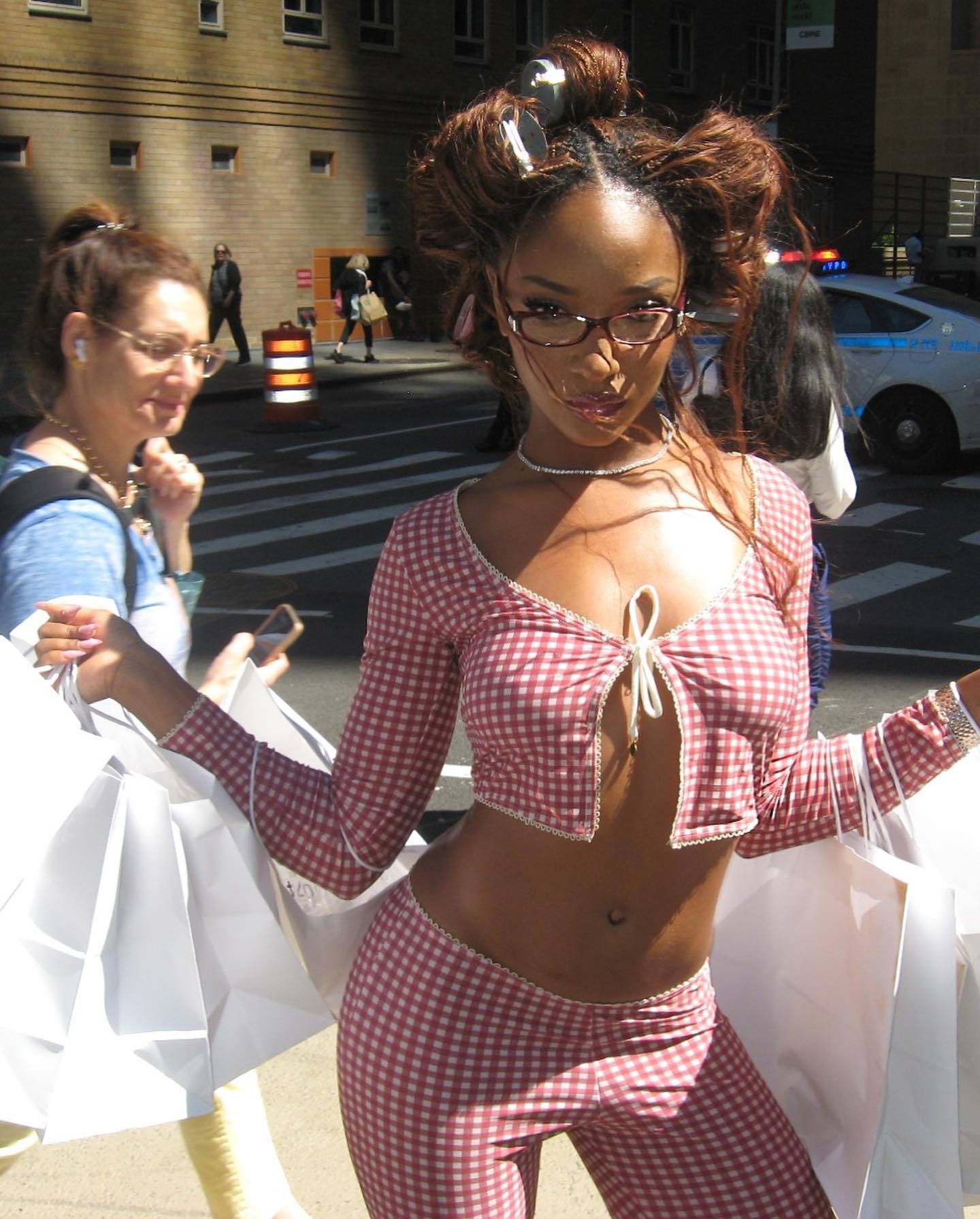
For over a decade, Tiwa Savage has been a vital cog in the indomitable Afropop machine, and an unmissable driver in its journey to its current status. She has rocked parties from Lagos to L. A. with her fluid dexterity over banging beats and molded tender romance and her natural verve into irresistible AfroRnB numbers. And yet, when credit is to be assigned to Nigerian music’s biggest shifters, she is hardly granted the recognition of her male counterparts. It is a recurring theme as old as the industry itself: Alhaja Batile Alake and Alhaja Salawa Abeni were both instrumental in the creation of Waka and its eventual evolution into Fuji, but often get left out of history books; the Lijadu sisters were amongst the earliest adopters of Fela Kuti’s Afrobeat in Nigeria, but they get an infinitesimal acclaim for this compared to the late legend.

Tems and Ayra Starr currently sit at the forefront of female stars seeking to break the glass ceiling in an industry that has undervalued its female stars for far too long. They are bold, ambitious, and incredibly talented, and have spent the last few years consolidating on their global fame at a pace that nearly outstrips the industry itself. Across the globe, their repertoire of accolades is staggering: Tems boasts an impressive collection of awards that includes a Grammy, BET, and Soul Train Awards, while Ayra, in addition to a slew of certifications, currently holds the most Spotify listeners of any African act, at 24 million. And yet, for much of Nigeria’s music audience, it’s not proved enough.
It is a time when the established hierarchies in Nigerian music are beginning to blur, and newer, younger artists look ready to challenge at the top level. Once only Wizkid, Davido and Burna Boy could venture into certain territories of global music achievements, now these feats are coming thick and fast by way of a newer generation of artists. On the back of contributing many of these achievements, Rema has unabashedly and repeatedly nominated himself to be included in a new Big Four, sitting at the same table with the elite.
Others think Asake, with his meteoric rise in the last few years, and his undeniable popularity back at home, makes a more worthy candidate. In conversations like these, however, the female artists are often conspicuously absent. Perhaps once upon a time, an excuse would be made for a gulf in noteworthy achievements between genders, but today’s leading women, Tems and Ayra Starr, are matching their male counterparts in efforts, and, even pulling ahead in some areas, so it’s getting harder to frame their exclusion as anything other than an internalized patriarchy that still sees women as background players.
But while sexism is the easiest and most likely culprit to point fingers at, it should be considered that the current situation might hold a little more nuance than that. Nigerian music has opened up in the last few years to global existence, and consequently, increased use of Western, non-Nigerian metrics used to measure and rank the impact of Nigerian artists. For many listeners, no metric is as important as street credibility. It explains why an artist like CKay, despite the blistering Love Nwatiti run of 2020 and the dozens of certifications and achievements, has struggled to get into conversations around Nigeria’s top level, despite holding, at some point, the record for the most streams on a song by any Nigerian singer.
Tems finds herself in a similar patch. She began her career as an alternative artist. When most of the industry-led with Afropop, with its invigorating percussion and simple, feel-good lyrics, prioritizing sound over substance. Tems’ debut, the Mr. Rebel had her mull reflectively over basic production she strung together herself. Her follow-up, Try Me, as well as parts of her debut EP, For Broken Ears, oozed with a little more passion and vividity, for which she was rewarded with a lot more new listeners, but its success, and Tems’ by extension, was always going to be hampered by its use of laid-back, sparse music, and Tems herself was not very likely to make a cross-genre switch for the sake of acceptability.

Source: Instagram/Temsbaby
But for a combination of her artistic prowess and just the right amount of luck (that many would call grace) that brought Tems, via a feature on Essence, to the view of a global market, she was very much fated to the few Nigerian artists that stick to their guns to create music, like Asa and Bez—respected by peers, and very much loved, but only by a small, albeit fiercely loyal, audience. By moving on from Essence to bigger things internationally, like collaborations with Beyonce, songwriting for Rihanna, and featuring with Drake and Future, Tems effectively sidestepped the need for the Nigerian market. Now, she still has to confront genre biases, which sometimes produce almost unbelievable results: Free Mind spent 21 weeks on the Billboard Hot 100, eventually peaking at number 46, but could not crack into Nigeria’s Turntable Top 100.
For Ayra Starr, the restrictions of genre hardly apply, since she dabbles into, and excels at the brand of Afropop Nigerians have made a staple. She’s made several intentional choices to achieve this throughout her career; swishing from the Afrosoul/RnB base of her eponymous debut EP to embracing a more Pop side with her debut album, 19 And Dangerous. When Bloody Samaritan ran out the album’s biggest hit, she shifted her focus almost completely towards Afropop, and churned out a series of groovy hits, like Rush, Sability and Rhythm And Blues. And while you would expect this laser focus on Afropop to enhance her palatability, the confusing murkiness of Nigeria’s listener habits means it may actually do the opposite.

Source: Instagram/Ayrastarr
Men are afforded a lot of leeway with themes and lyrics in Afropop. A lot of enjoyable music is just so because creators put a lot of attention into making it as light and hedonistic as possible, orbiting around sex, love, or money. While this is a system that has suited most Afrobeats creators and listeners for over a decade, female artists are often held to higher standards for songwriting and lyricism. It is always interesting to see an audience that has no problems bobbing along to the simplest, most playful lyrics—because they, after all, were made to make you dance—suddenly pull out the magnifying glasses to analyze the music of a female star. After the release of Sability, Ayra Starr came under fire for the looseness of her writing, so much so that it had to be repeatedly pointed out that she was being held to unfairly higher standards than mainstream male artists.
And of course, overtly sexual themes are completely off the table for women, because the same audience that watches male artists spew all sorts of risque lyrics suddenly remembers the importance of modesty and propriety when a female does the same. It hasn’t been that long since Tiwa Savage came under heavy fire for wearing a body-hugging attire for her Wanted music video, at a time when female objectification was the standard in male music videos. Female artists have to be sexy enough to be ogled at, but must never own their sexuality themselves or they risk being labeled promiscuous. Of course, Tiwa Savage was hardly bothered about her perception with moral standards; she had previously seen her video for Love Me Love Me Love Me—relatively tame in comparison—received backlash for being too risque, and her response was to dial up the heat even more with Wanted.
Ten years later, things have hardly changed in this regard: Ayra Starr still comes into conversation more often for the silliest, more sexist things like this picture with Jaywon or inadvertently snubbing King Sunny Ade, than for her ever-growing list of accolades, while Tems received far less noise for her Grammy win than her male counterparts do for nominations. This time, however, the new generation of female stars is more resilient than ever, and as they rise above the noise, each achievement only makes them harder to ignore.
